CRM DefinitionDeveloping a personal relationship with each is simple when you have a small client base. You might know their objectives, past purchasing patterns, and even more private information like their dietary restrictions or upcoming vacation schedule. 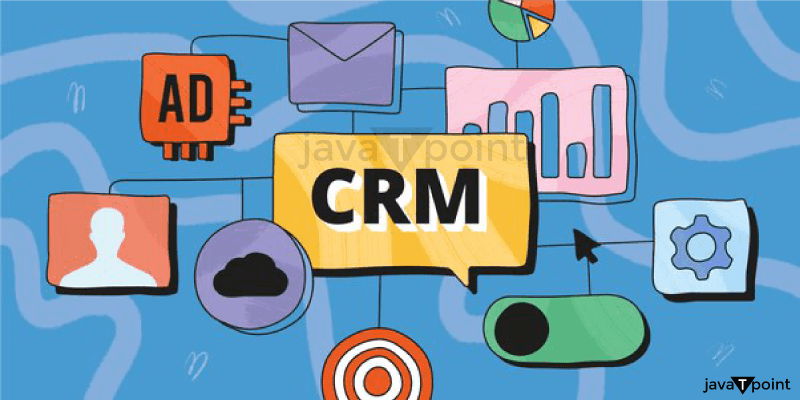
However, things become more challenging when your company grows. How can you be sure that each customer is given the same high degree of care? How can you establish customized, relevant interactions when your client base numbers are in the thousands? Software for customer relationship management (CRM) can be useful. Even when your business expands, CRM helps you manage administrative tasks more efficiently and enhances customer satisfaction. Customer Relationship Management (CRM)A customer relationship management (CRM) platform is created to assist organizations in managing and enhancing interactions with current and potential customers. CRM replaces the spreadsheets, papers, and apps organizations frequently use to keep track of customer information by gathering and storing customer information, activity, and conversations in a centralized and accessible database. A CRM can organize outreach efforts, evaluate performance, control client interactions, and speed up the billing and customer service processes. Therefore, it encourages customer loyalty and retention while also assisting businesses in improving their relationships with their current clients. 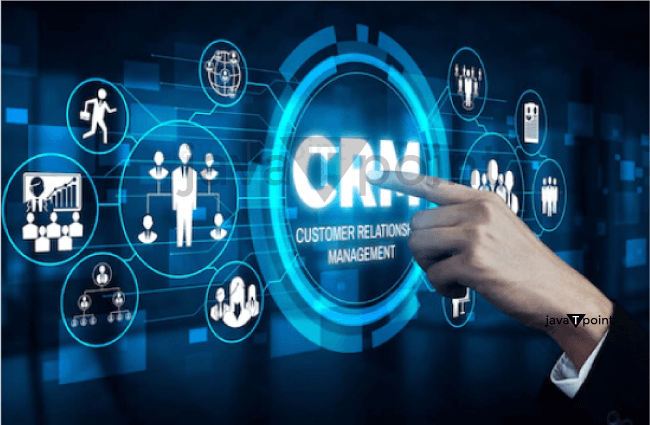
After all, a company's revenue is impacted by client retention and loyalty. Consequently, it is a management technique that aids in boosting a business's profit. Meanwhile, it helps organizations enhance consumer satisfaction, experience, retention, and service. CRM SoftwareCRM software enables you to readily communicate and maximize the information on a specific customer, helping you to comprehend and foresee their demands. By definition, a CRM gathers all types of data related to business administration while keeping a detailed record. All communications with a customer, including calls, meetings, and emails, are automatically saved in that client's file since the history is so comprehensive. Everyone in the organization has access to this file. Internal notes and tasks with deadlines can be added to these conversations and assigned to your team members, greatly increasing productivity. CRM Software SignificanceCRM software mainly focuses on improving client relationships by providing businesses with smart tools to develop a successful strategy. Implementing this useful tool can make a major difference in positioning yourself equally with some of your biggest competitors. One notable feature is that all these data are stored safely in a unified CRM database. Thus, users can effortlessly access and manage increasingly significant data through one powerful source of information. How Does CRM Work?The CRM is a small system with tracking functions that track various online customer interactions. Additionally, CRM can automate a wide range of business processes and gives managers access to important tools for monitoring and analyzing the performance and productivity of their organizations. The right strategy, as always, is essential to a company's success. In any company, the company's overall objectives, customer requirements, and, most significantly, the proper connection of the CRM strategy are considered considerably important. It is crucial for businesses to pursue their goals while considering the consumer's needs and to feel the urge to add value by improving the effectiveness of customer interactions. A correctly designed CRM strategy enhances customer acquisition, retention, and development. Thus, CRM software has the potential to link crucial business processes like customer care, marketing, and sales activities to enhance the customer experience and encourage repeat business. Since any CRM system should streamline and simplify a business's workflow, it may easily assist organizations in bridging the gaps between the marketing, customer service, and sales sections, enabling businesses of all sizes to achieve their final objective at a reasonable cost. Why is CRM Important?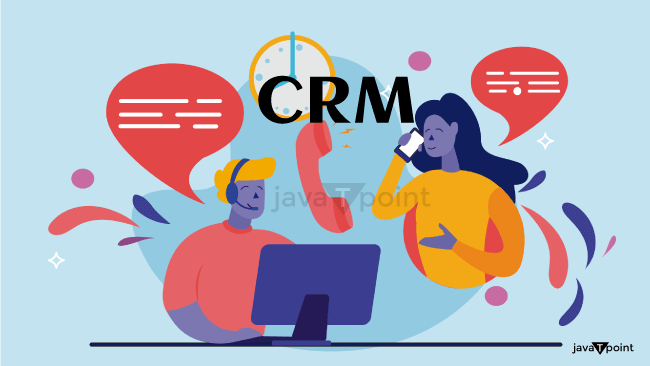
Acquiring new clients and keeping existing ones is crucial now more than ever because every industry is very competitive. Customer relationship management makes your business more customer-centric, which increases the probability that you will make 60% more money than you would without it. Therefore, having a strong relationship with your customers will help you gain more loyalty. How Does CRM Benefit a Business?In the current world, various innovative techniques are required to maintain and significantly outperform the competitors. The Business Process Management (BPM) technology used in CRM enables businesses to quickly adjust to changes emerging in the business environment by granting:
Components of CRM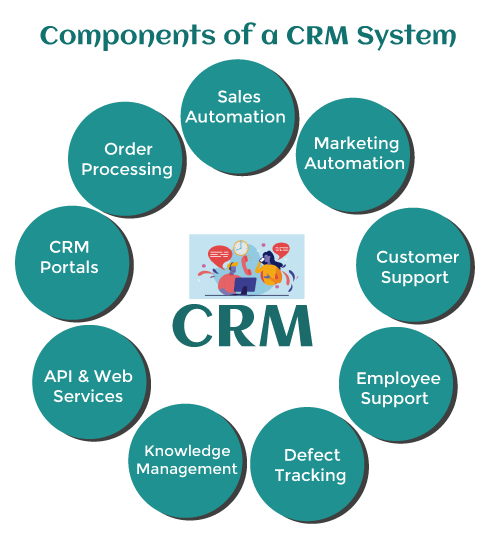
CRM software primarily integrates customer relationships and information into an individual database for easier access and management by business users.
Types of CRM Software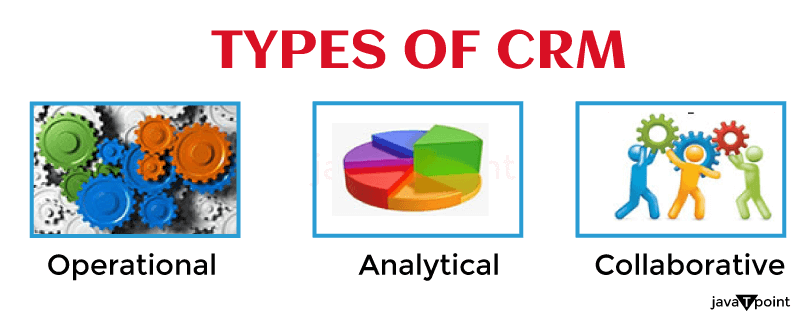
There are various CRM types. Operational CRM: Operational CRM optimizes numerous business activities by automating sales, marketing, and service. It is primarily concerned with providing excellent customer service. It focuses on generating leads, turning them into contacts, and collecting all the relevant data and specifics about each client to give individualized service throughout their life cycle. Since the business interacts directly with the customer, all these processes are called "Front Office." Its primary functions include the following:
Analytical CRM: The analytical CRM is connected to an information or data repository called Data Warehouse. It refers to the various software applications and tools that give customer information. It evaluates outcomes and assists in decision-making regarding goods and services. Its primary functions include the following:
Collaborative CRM: Collaborative CRM aims to collect and organize all the data and information customers submit through different channels. The purpose of gathering this data is to raise the standard of customer service. We can increase customer loyalty and attract new customers when all consumer needs are met. Its primary functions include the following:
Advantages of CRM Software
Disadvantages of CRM Software
Examples of CRM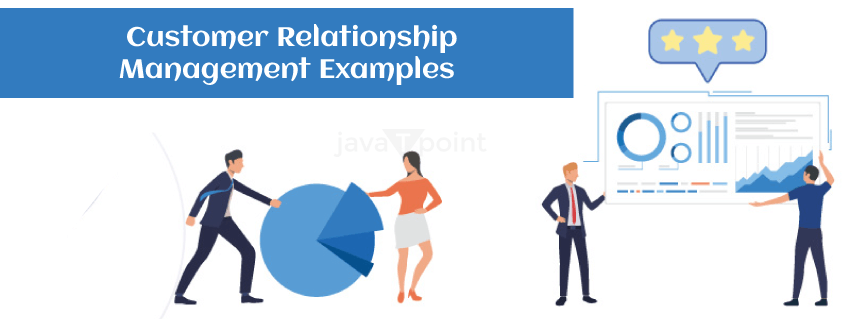
ConclusionBusiness is a continuous process that needs to improve with time (adopt technological advances)to stay competitive. Customer data, or CRM, was previously based on paper, but over time, businesses began to manage customer-related data using spreadsheets, emails, address books, and various other methods. However, locating and communicating current information swiftly when needed becomes challenging without automation and integration. It also restricts their capacity to develop marketing plans, give customers excellent support, and look through fresh sales prospects. CRM is a dynamic tool that automatically gathers data on current and potential customers (their professional or private information, including social network posts, email addresses, phone numbers, telephone numbers, customer service, history of purchases, and support tickets). 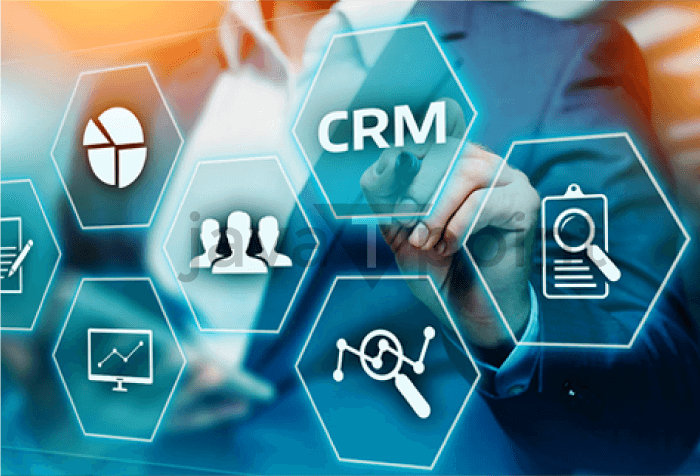
Additionally, the system integrates all the data and creates collected profiles that might be shared with qualified teams. The ability of CRM to link with other business tools like online chat and document-sharing applications is one of its finest features. CRM has built-in artificial and business intelligence capabilities that accelerate administrative tasks and offer useful insights.
Next TopicCryptography Definition
|
 For Videos Join Our Youtube Channel: Join Now
For Videos Join Our Youtube Channel: Join Now
Feedback
- Send your Feedback to [email protected]
Help Others, Please Share










